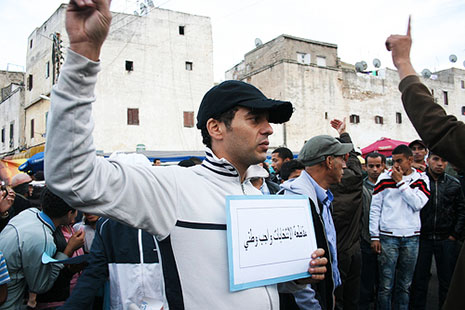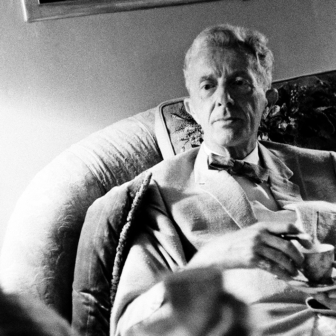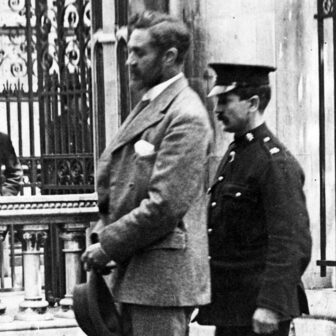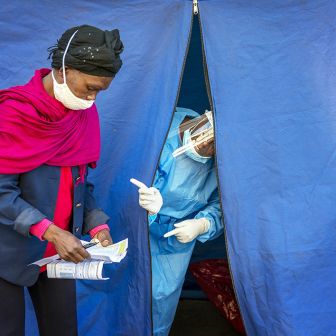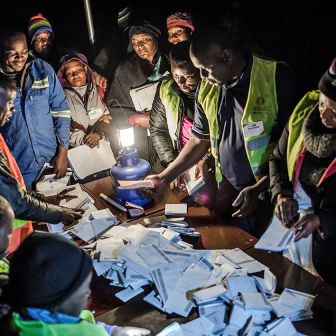“MOROCCO is different,” Mohammad, a hotel cook, explained to me as we walked the streets of Marrakesh recently. “It’s not Tunisia, Egypt or Libya. Here the people are happy, they have jobs. Life is good.”
He considers himself a lucky man, working three hours at the breakfast shift and another three in the evenings at the same hotel where his wife, Fatima, works as a cleaner during the day. Between shifts he drums up business for his Berber friend, Abdul, who comes in from the nearby Atlas mountains each Friday to sell his wares in the market in the old city.
As if to illustrate how Morocco is liberal and Westernised in many ways, Mohammad suggested we drink a beer together at a favourite bar, even though he is on his way to Friday prayers at the mosque.
Was he going to vote in the forthcoming elections, I asked him. Maybe, maybe not, he shrugged. His initial impulse was not to vote, but now that the parties pushing for radical change from the right and left are urging people to boycott the polls Mohammad was unhappy about that option. “We don’t have the problems here that they have everywhere else. The young people can get work, we are not poor and I think the king is a very wise man who knows the people and he is greatly admired. He is not Mubarak or Gaddafi.”
But the king and his circle watched closely, perhaps even anxiously, as events unfolded in the Arab Spring. They moved swiftly to try to counter any unrest in the kingdom, with the king proposing changes to the constitution. The election, held on 25 November, was the first since the approval in July of a new constitution that transfers some of King Mohammed VI’s near absolute powers to parliament and the prime minister. The king, the latest in a royal line that has ruled the north African country for 350 years, must now choose a prime minister from the winning party instead of naming whomever he pleases. The new prime minister will have the power to appoint government ministers and dissolve parliament.
For many, this did not go far enough. It was not the replacement of the king that activists were clamouring for so much as a shift to a constitutional monarchy in which the king would reign but not rule. Critics urged a boycott of the polls. But the boycott was only a limited success; some 45.3 per cent of eligible voters cast their ballots – a solid, legitimising outcome – up from 37 per cent at the 2007 election, but below the 51.6 per cent turnout in 2002.
Less successful for the king was the outcome. As happened in Tunisia, the largest number of seats fell to a moderate Islamist party, the Justice and Development Party, or PJD. With 107 seats in the 395-seat assembly, up from forty-seven in the old assembly, the party won the right to lead a coalition government for the first time. An Islamist party has never been allowed into government, but since the PJD will have to govern in coalition with several other parties, few radical changes can be expected. Unlike the banned Islamist opposition group, Justice and Charity, the PJD pledges its allegiance to the monarchy.
The fact that the complex electoral system ensures that no single party can win a majority, and that a broad coalition is the only way a government can be formed, is itself a point of protest for many political activists. “No matter what happens, the same people who have been running Morocco for decades will continue to run Morocco,” Anna, a young legal academic, told me. “And this is why we do not get excited by the so-called reforms and the election.”
It did not pass unnoticed in the capital, Rabat, that a major grievance of pro-democracy protests in Egypt and elsewhere was corruption. Along with proposals to further liberalise the constitution, a series of initiatives was unveiled signalling major efforts against corruption. And in October, with Morocco hosting a major UN conference on anti-corruption, information stands and brochures by the score proclaimed to the international visitors that Morocco was serious about the problem.
And, up to a point, it is. Morocco has ratified the United Nations Convention Against Corruption and since 2005 has committed to implementing a governmental plan to fight corruption. According to the international corruption watchdog, Transparency International, the most important measures so far are anti-money-laundering legislation, a new Central Authority for the Prevention of Corruption, rules requiring that public officials declare their assets, and a decree regulating public procurement.
“In Morocco, corruption is endemic but it is no longer a taboo,” Transparency International says in its annual global assessment, but despite an increasing effort by authorities there has been no discernible lift in Morocco’s annual ranking. TI has had a chapter in Morocco since 1996 and has been active in seeking civil society support, including from the media, in the fight against corruption, but a TI official told me it was very difficult to make progress in a culture that has no tradition of accountability.
Even though the king has taken the lead role in promoting an anti-corruption drive, a leaked US diplomatic cable in 2008 referred to “the appalling greed” of those close to him. According to the US report, made public by WikiLeaks, decisions involving Omnium Nord Africain, or ONA, a holding company owned by the king, are made only by the king and two of his powerful associates. “To have discussions with anyone else would be a waste of time,” the head of the company is quoted as saying.
Royal involvement in business is a hot but sensitive topic in Morocco. The US embassy in Rabat reported to Washington in a separate cable that “corruption is prevalent at all levels of Moroccan society.”
King Mohammed, who succeeded his father, Hassan, in 1999, is said to have cleaned up the royal family’s act, but it appears he has not done enough. “While corrupt practices existed during the reign of King Hassan II… they have become much more institutionalised with King Mohammed VI,” one cable quotes a businessman as saying. Institutions like ONA – Morocco’s largest conglomerate, which clears most large development projects – regularly coerce developers into granting beneficial rights to ONA, the businessman was quoted as saying.
Morocco may not be too different from its neighbours after all. But what is different is how discontent is managed, and for the moment, in that respect, the efforts of the king and his circle have largely been successful. •
